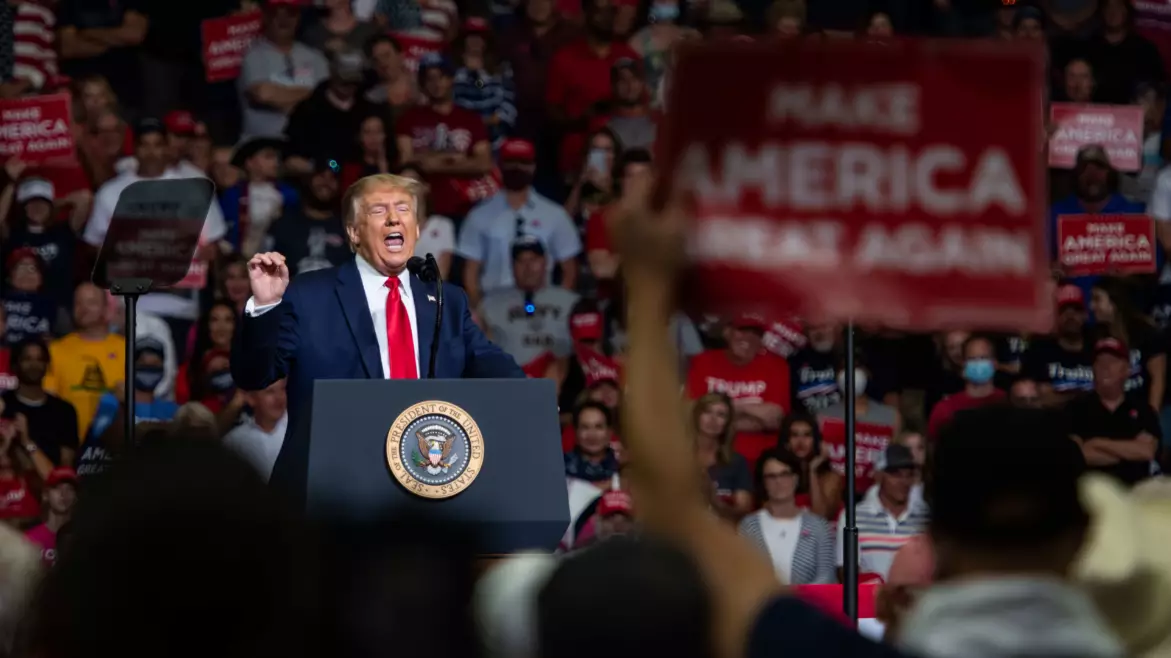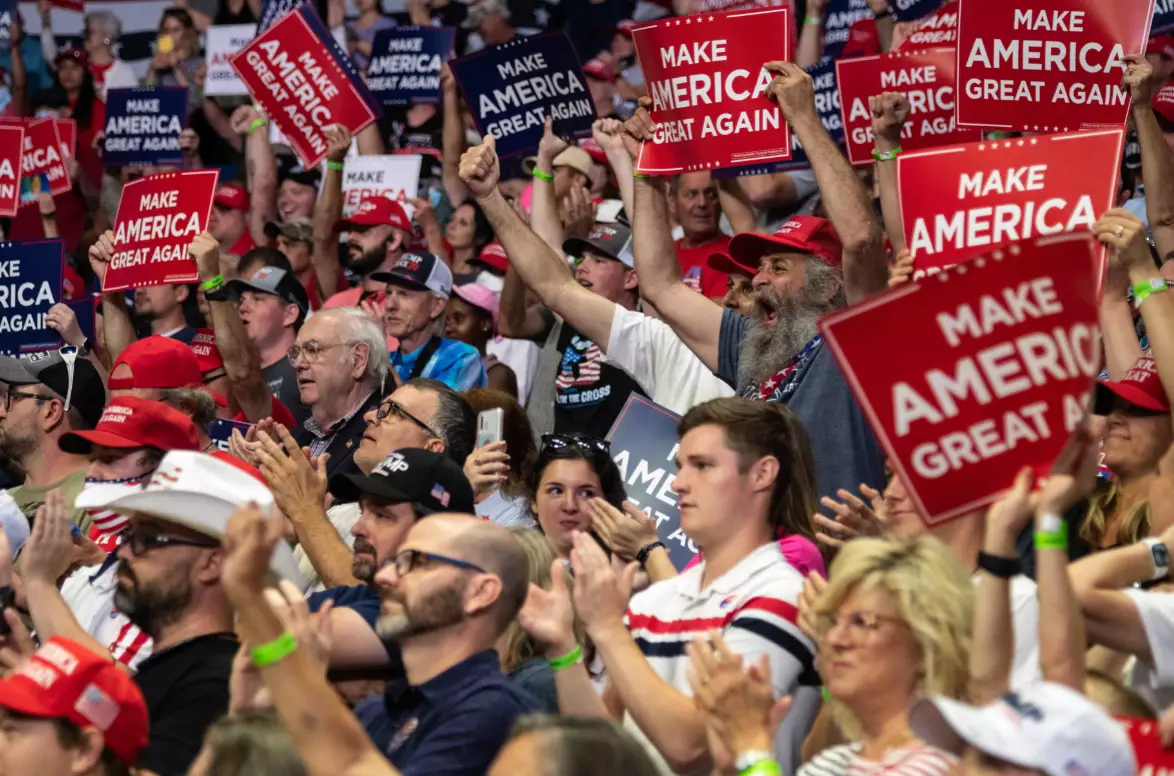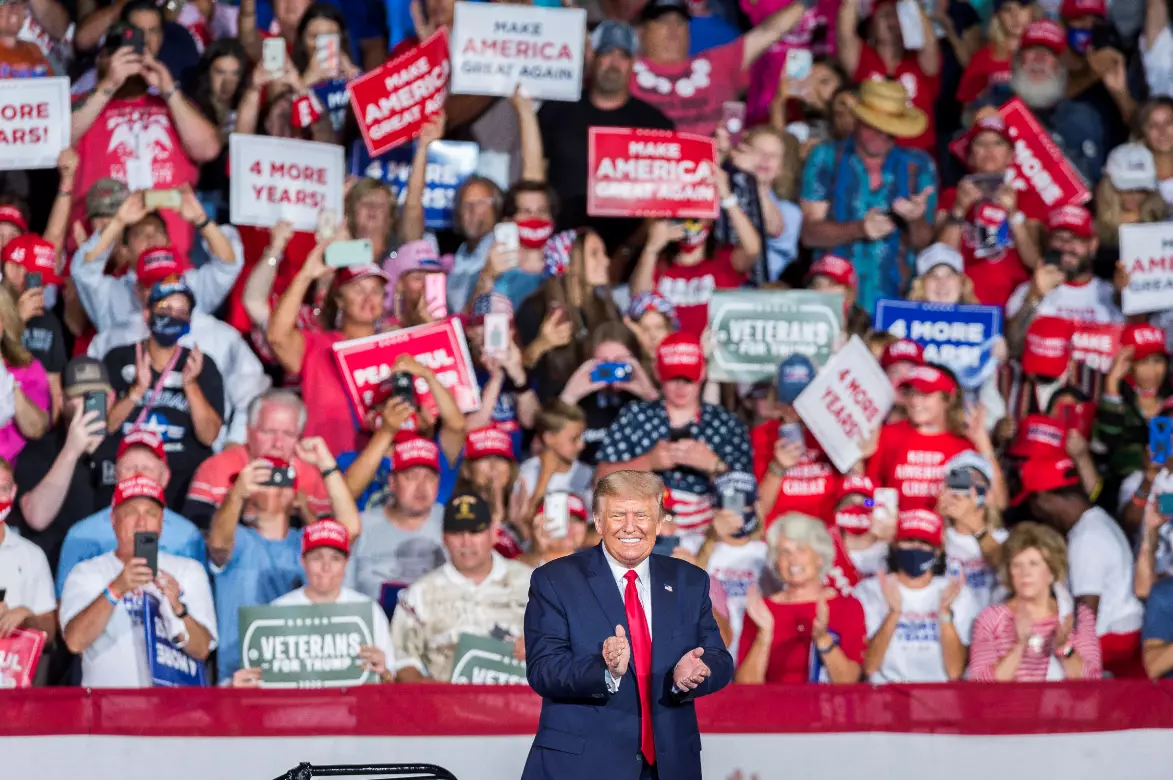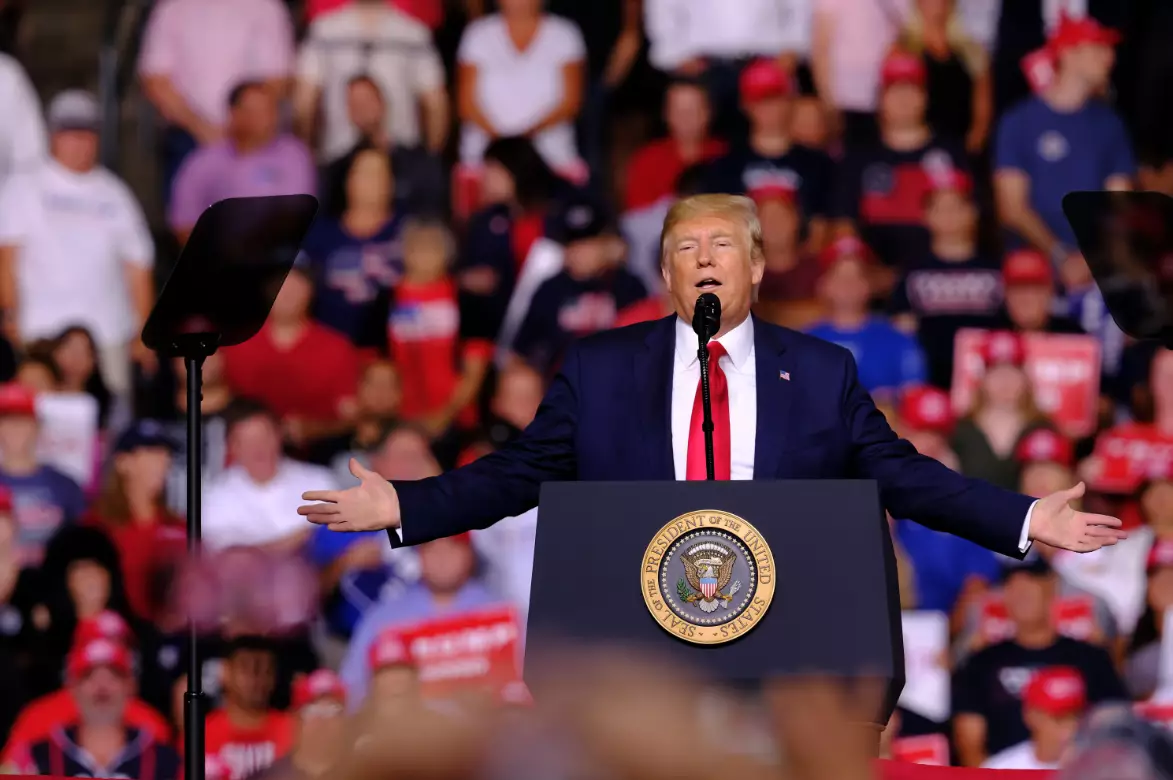
A new study claims that Donald Trump's rallies may have led to 700 coronavirus deaths and 30,000 new infections.
The new report, which comes from researchers with the Stanford Institute for Economic Policy Research, looks at the number of cases and deaths up to 10 weeks after Trump held 18 huge rallies between 20 June and 22 September.
Three of the events were also held indoors.
Advert
The team explored how the virus spread in the counties where the rallies were held, and compared the data to counties that had similar case trajectories before the rallies took place.
In the paper - which has not yet undergone peer review, and hasn't been vetted by public health or epidemiology experts - they argue that the 18 rallies increased subsequent cases of the virus by an average of more than 250 infections per 100,000 residents.

The authors say in their report: "At least through September 2020, the degree of compliance with guidelines concerning the use of masks and social distancing was low, in part because the Trump campaign downplayed the risk of infection.
Advert
"This feature heightens the risk that a rally could become a 'superspreader event'."
The authors, B. Douglas Bernheim, Nina Buchmann, Zach Freitas-Groff and Sebastián Otero, argue that the estimated death toll was not just limited to those who actually attended the rallies, as it would also spread from them to their friends and family.
The concluded: "Our analysis strongly supports the warnings and recommendations of public health officials concerning the risk of Covid-19 transmission at large group gatherings, particularly when the degree of compliance with guidelines concerning the use of masks and social distancing is low.

"The communities in which Trump rallies took place paid a high price in terms of disease and death."
Advert
Following a rally in Tulsa, Oklahoma, in late June, health officials in the city said that the large crowds 'likely contributed' to a dramatic surge in new cases - with 261 cases confirmed the Monday after, and 206 on the Tuesday, compared with 76 cases and 96 cases on the Monday and Tuesday before the event.
While Tulsa City-County Health Department's policy is not to publicly identify where people may have contracted the virus, Director Dr. Bruce Dart said the big gatherings 'more than likely' contributed to the spike.

He said: "In the past few days, we've seen almost 500 new cases, and we had several large events just over two weeks ago, so I guess we just connect the dots."
Advert
Trump campaign spokesman Tim Murtaugh said the campaign had gone to great lengths to ensure rally attendees were safe.
He said in a statement: "There were literally no health precautions to speak of as thousands looted, rioted, and protested in the streets and the media reported that it did not lead to a rise in coronavirus cases.
"Meanwhile, the President's rally was 18 days ago, all attendees had their temperature checked, everyone was provided a mask, and there was plenty of hand sanitiser available for all.
"It's obvious that the media's concern about large gatherings begins and ends with Trump rallies."
Featured Image Credit: PATopics: News, Coronavirus, US News, Donald Trump